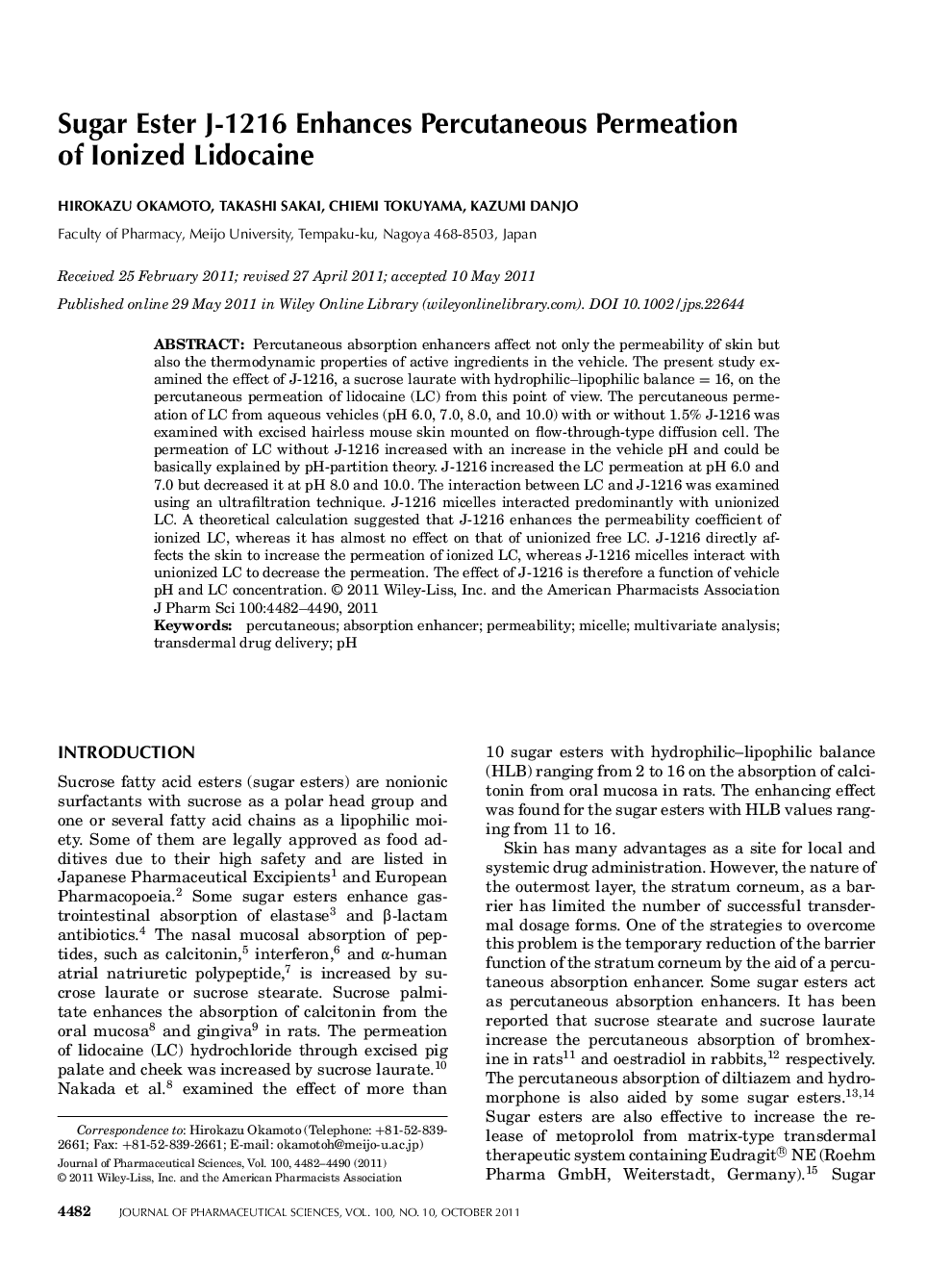| Article ID | Journal | Published Year | Pages | File Type |
|---|---|---|---|---|
| 2485305 | Journal of Pharmaceutical Sciences | 2011 | 9 Pages |
Abstract
Percutaneous absorption enhancers affect not only the permeability of skin but also the thermodynamic properties of active ingredients in the vehicle. The present study examined the effect of J-1216, a sucrose laurate with hydrophilic-lipophilic balance = 16, on the percutaneous permeation of lidocaine (LC) from this point of view. The percutaneous permeation of LC from aqueous vehicles (pH 6.0, 7.0, 8.0, and 10.0) with or without 1.5% J-1216 was examined with excised hairless mouse skin mounted on flow-through-type diffusion cell. The permeation of LC without J-1216 increased with an increase in the vehicle pH and could be basically explained by pH-partition theory. J-1216 increased the LC permeation at pH 6.0 and 7.0 but decreased it at pH 8.0 and 10.0. The interaction between LC and J-1216 was examined using an ultrafiltration technique. J-1216 micelles interacted predominantly with unionized LC. A theoretical calculation suggested that J-1216 enhances the permeability coefficient of ionized LC, whereas it has almost no effect on that of unionized free LC. J-1216 directly affects the skin to increase the permeation of ionized LC, whereas J-1216 micelles interact with unionized LC to decrease the permeation. The effect of J-1216 is therefore a function of vehicle pH and LC concentration. © 2011 Wiley-Liss, Inc. and the American Pharmacists Association J Pharm Sci 100:4482-4490, 2011
Keywords
Related Topics
Health Sciences
Pharmacology, Toxicology and Pharmaceutical Science
Drug Discovery
Authors
Hirokazu Okamoto, Takashi Sakai, Chiemi Tokuyama, Kazumi Danjo,
